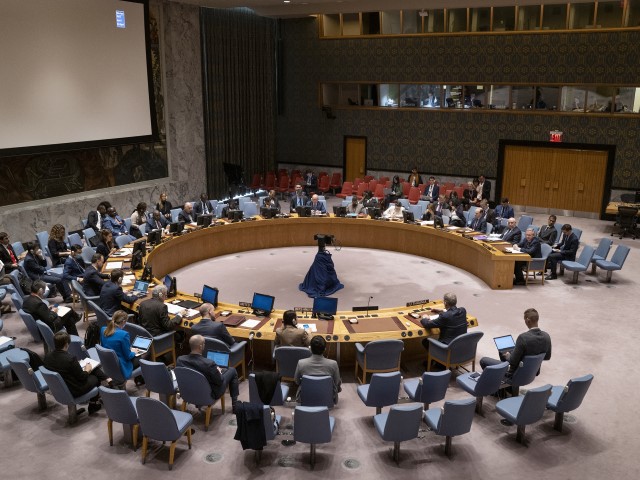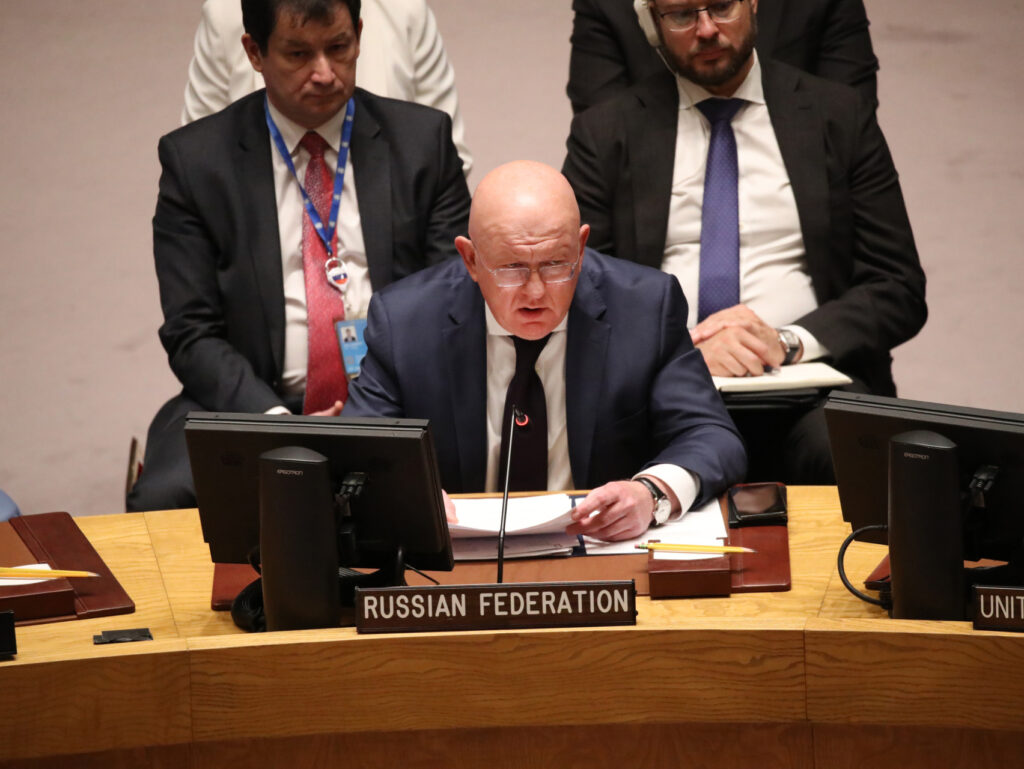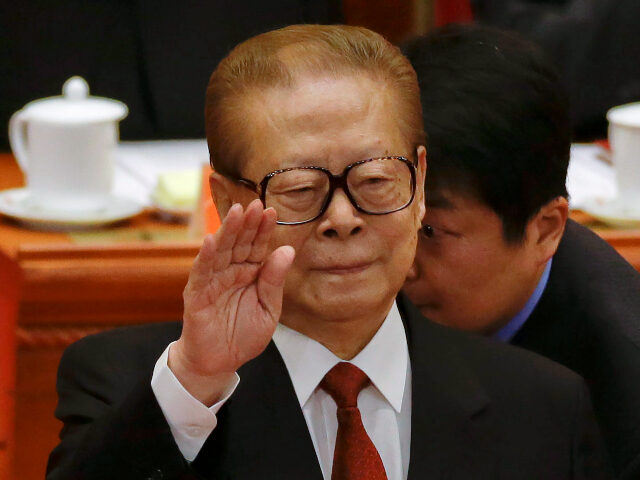The U.N. Security Council (UNSC) on Wednesday observed a moment of silence for the passing of former Chinese dictator Jiang Zemin, the leader who guided China into global influence after the atrocity of Tiananmen Square.
There was some drama at the meeting when the U.S., U.K., and India declined to join several other members in expressing condolences for Jiang.
“Former president Jiang Zemin will be remembered by the international community for his dedicated contribution to global peace, security and development and for his role in China’s reforms, its opening up, modernization and economic development,” said Harold Agyeman, the U.N. ambassador from Ghana, before the moment of silence was observed. Ghana held the rotating UNSC presidency for the month of November.
United Arab Emirates (UAE) ambassador Mohammed Abushabab applauded Jiang’s tenure for its “economic prosperity and stability.”

Members of the Security Council meet to discuss threats to international peace and security at United Nations headquarters, Monday, October 31, 2022. (Craig Ruttle/AP)
“China, under his leadership, galvanized international efforts to promote global development and uphold the rights of women by hosting the Beijing conference in 1995,” Abushabab said.
Russian ambassador Vasily Nebenzya called Jiang an “outstanding statesman” and praised the “major accomplishments and economic and social development” under his regime.

Russian Ambassador to the United Nations Vasily Nebenzya attends vote at the United Nations Security Council on September 30, 2022 at U.N. Headquarters in New York City. (Spencer Platt/Getty Images)
Several other member nations extended less complimentary condolences to the Chinese government for the loss of Jiang, but not America, Britain, or India.
India and the United States are currently involved in a dispute with China over joint U.S.-Indian military exercises in the Himalayan mountains, close to the tense border between India and China.
The Chinese Foreign Ministry on Wednesday claimed the joint exercises “violated the spirit of relevant agreements” and do not “serve the mutual trust” between China and India.
“India exercises with whomsoever it chooses to, and it does not give a veto to third countries on this issue,” the Indian Foreign Ministry responded.
The Indian Foreign Ministry invited China to ruminate on its own actions in violation of those 1993 and 1996 agreements, as well as de-escalation talks conducted after a bloody hand-to-hand skirmish between Indian and Chinese troops in 2020.
The military exercises China objected to are actually a regular annual event called Yudh Abhyas that dates back 18 years, although previous iterations have been held further away from the India-China border, or on U.S. soil.
The exercise is meant to promote cooperation and equipment interoperability between Indian and American forces, and to bolster training in high-altitude mountain environments. The Indian military was eager this year to show off the close combat skills that came in handy back in 2020:
Indian forces also demonstrated their innovative use of kites – meaning the predatory birds – to take out drones. India began training the birds to hunt and kill small unmanned aerial vehicles in 2020. The birds themselves can also be used as surveillance assets, as they have been trained to fly with small cameras attached to their heads.

COMMENTS
Please let us know if you're having issues with commenting.